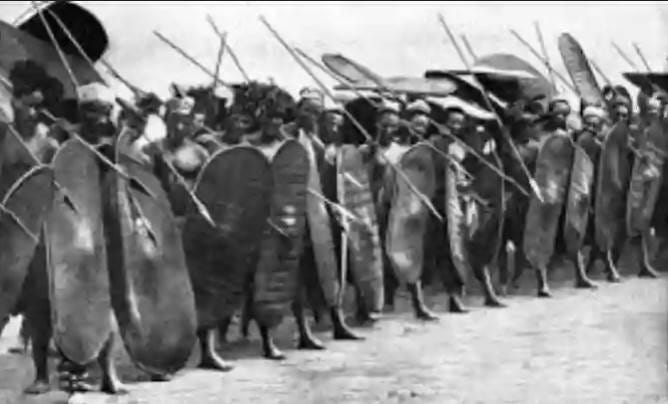When The Police Is Caught Between A Rock And A Hard Place
BY AHMAD SAMAD

On June 12, Nigeria celebrated the 25th anniversary of her democracy, marking a significant milestone for the world’s most populous black nation.
This achievement underscores Nigeria’s consistent commitment to maintaining a democratic system of government over the past two and a half decades.
The robustness of any democracy is reflected in the stability and functionality of its three major branches of government: the executive, the judiciary, and the legislature.
In Nigeria, the interplay between these branches of government has not metamorphosised into the expected maturity of a 25-year-old.
Unfortunately, the administration of President Tinubu has faced numerous challenges, highlighting that Nigeria’s democracy still has considerable progress. The ongoing crises in Kano and Rivers States exemplify the difficulties along this path.
Rivers State, in particular, has become a battleground due to the ongoing conflict between Nyesom Wike, the former governor, and Siminalayi Fubara, his handpicked successor. This open war has turned the state into a zone of political turmoil, reflecting the broader struggles within Nigeria’s democratic landscape.
Additionally, the power tussle in Kano, where certain politicians seem intent on exploiting the Emirate case to undermine the judiciary and provoke political crises, exacerbates the situation. The enactment of a new emirate law to dethrone Emir Ado-Bayero and enthrone Emir Sanusi II, along with the numerous court actions that followed, clearly jeopardizes the stability of the nation’s political landscape.
In 1987, the Supreme Court ruled in the case of Tukur versus the Governor of Gongola state that the federal high court lacked jurisdiction over chieftaincy matters.
Given this precedent, concerned Nigerians are questioning how the federal high court in Kano assumed jurisdiction to rule in the current case, raising significant legal and constitutional queries.
Amidst the ongoing turmoil, maintaining law and order must have posed a significant challenge for the police.
The Commissioners of Police in Rivers and Kano States find themselves amidst a challenging situation, navigating a landscape fraught with conflicting court rulings and the actions of political supporters and sympathisers of the ruling elites. This situation places them in a precarious position, torn between upholding legal mandates and maintaining public order in a highly charged political environment.
Nigerians frequently criticize the police for perceived ethical lapses and unprofessional conduct in their duties. However, this criticism overlooks the critical lack of essential resources and support systems required for effective policing that ensures the safety of lives and property. Despite these challenges, both commissioners of police in Kano and Rivers have demonstrated exceptional maturity, maintaining a commendable level of neutrality and professionalism amidst the unrest in both states.
In 2004, I recall the tragic ordeal of the late Raphael Ige, an Assistant Inspector General (AIG) of Police, who became entangled in a fierce political feud that ultimately devastated his career, allegedly leading to his declining health and eventual death.
This conflict arose during the intense political battle between Chris Uba, a political godfather, and Chris Ngige, the former governor of Anambra state. The turmoil highlighted the profound challenges faced by law enforcement officials caught in the crossfires of political struggle.
The late AIG Ige obeyed an unlawful “order from above,” allowing himself to be used by political figures in Anambra. According to a report by Vanguard Newspaper, AIG Ige effectively emptied the Zone 9 headquarters of police personnel for the operation to arrest Chris Ngige, a sitting governor.
Former Governor Chris Ngige recounted the chaotic events leading to his arrest. He described how his ADC was pushed out and how he saw Ige and an armed deputy superintendent of police (DSP) in the anteroom. Ige, dressed in civilian clothes, did not offer the customary salute, indicating that something was amiss.
Ige instructed Ngige to stop working, following orders from “high up”. When Ngige questioned the legitimacy of these instructions, Ige insisted he refrain from using the phone, although Ngige managed to take a call from the state director of SSS.
Ngige also recounted how he refused to sign the forged resignation letters Ige presented. He stood his ground despite being pressured and threatened, arguing that the letters were not authentic.
I hope that Tunji Disu, the Commissioner of Police in Rivers State, will remain neutral and professional in performing his duties. Also, the immediate past Commissioner of Police for Kano, Husaini Gumel, recently promoted to AIG, should be applauded for managing the Kano crisis and preventing a total breakdown of law and order in the state.
The newly appointed Commissioner of Police in Kano, Salman Dogo Garba, should also maintain professionalism and neutrality amid the emirate disputes in the ancient city of Kano.
Security chiefs in both States should learn from the late AIG Ige’s example, as the judiciary and executive continue to conflict with each other, creating challenging situations for the police force in maintaining peace and order.
Ahmad Samad wrote in from Katsina












